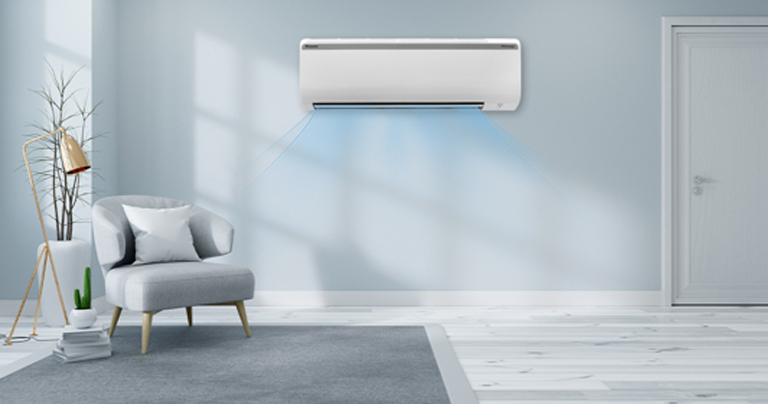
Picking the right air conditioner for your home involves a lot of jargon that can make it difficult to understand. The capacity, in BTUs, is one of the most important decisions you’ll need to make. A 12,000 BTU inverter-style split AC has become one of the more prevalent choices for cooling this type of space, so you might be asking yourself if that is exactly what you need. Here’s how you can work that out.
The British Thermal Unit, or BTU, is the unit that measures an air conditioner's cooling capacity. What it means for an air conditioner to have high BTUs is straightforward: A higher number means your AC can extract more heat from a room for every hour that it cools. One mistake people often make is to assume that bigger is always better.
An oversized AC unit for the space will cool the space too rapidly and not provide enough time to remove moisture from the air. This makes for an icky, moisture-laden sensation and can even cause mold to grow. On the other hand, an air conditioner that is too small for your home will have to work constantly just to maintain a comfortable temperature, resulting in increased energy bills and additional wear and tear on your system.
A medium room where 12,000 BTUs can be used is usually slighted by installers. A good rule of thumb is that this size spot cooler works great for a room not overly huge. But this is not even the beginning. The floor area is just a part of the picture. But to get a more accurate size, you must take into account several other elements that also affect the chill load.
Think about the room itself. Is it on the upper floor of your house, where it sits in full sun for much of the day? Or is it a basement room, naturally cool? Rooms with lots of sun exposure — particularly those that have large, west- or south-facing windows — will soak up markedly more heat. This “solar gain” will mean you may need a BTU capacity that is higher to offset. Likewise, a poorly-insulated room will lose cool air faster and force the AC system to work harder. The quantity of people and heat-emitting devices in a room, such as a TV or computer, can also contribute to the total heat load. Even the height of your ceiling can play a factor: If the walls are taller, there’s more volume of air to cool.
The presence of inverter technology in the AC adds a further layer of complexity to this decision. Rather than a classic air conditioner, which cycles on and off according to the thermostat, an inverter compressor runs at variable speeds to achieve cooler temperatures. This “Run it all the time” ability means it’s outrageously energy efficient and awesome for constant cooling. That’s why companies such as Daikin have made inverter technology a priority. It’s a big reason an inverter AC might be worth the long-term investment.
But before you think about the 12000 BTU Split AC Price, you need to do a little math, considering all these things. It’s not all about square footage. First, measure the dimensions of your room and consider what defines it. Are you installing it in a bedroom or a kitchen? A kitchen, which also contains ovens and appliances, would have a far greater heat load. Is there always more than one person in the room? Each person adds to the heat.
Ultimately, choosing the right size is about finding the perfect balance between performance and efficiency. A properly sized air conditioner will not only keep you comfortable but will also save you money on your electricity bills over time. While you might be tempted to jump on a feasible 12000 BTU inverter Split AC price, remember that the initial investment is only part of the story. The long-term savings from efficient operation far outweigh the temptation to buy a unit that doesn't perfectly match your room's needs.

